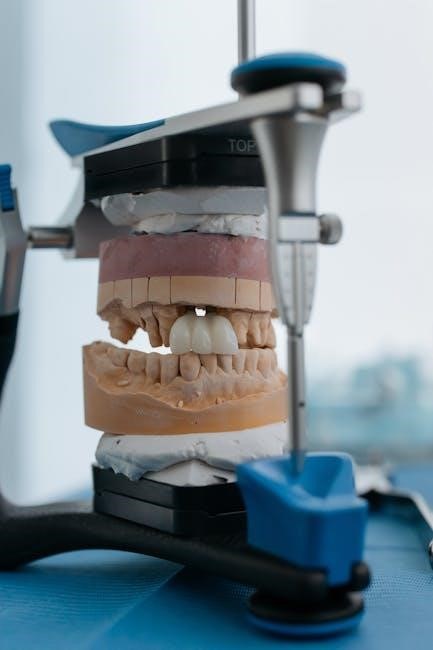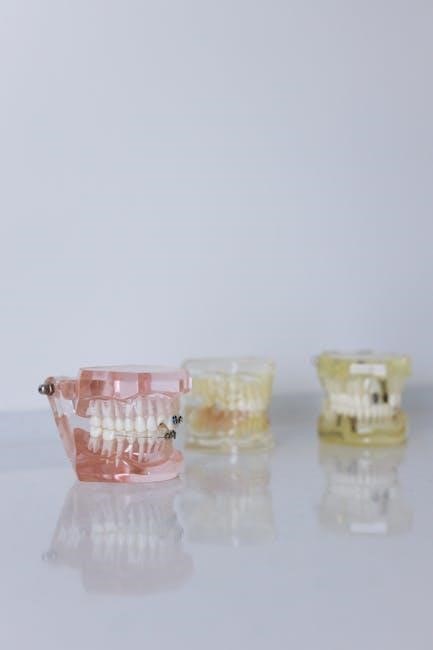This guide provides comprehensive insights into denture teeth molds, focusing on their role in dental prosthetics. It offers tips on selecting molds for optimal fit and aesthetics.
What is a Denture Teeth Mold?
A denture teeth mold is a guide used to create prosthetic teeth that match the shape, size, and shade of natural teeth. It ensures a custom fit and aesthetic appearance, aiding in precise denture fabrication. The mold helps dental professionals achieve accurate impressions and select appropriate tooth shades for a natural look. It is a crucial tool in denture creation, combining functionality and aesthetics for optimal results.

Importance of Proper Mold Selection
Proper mold selection ensures a natural appearance and optimal fit for dentures. It directly impacts comfort, functionality, and aesthetics. A well-chosen mold aligns with the patient’s oral structure, preventing discomfort or functional issues. Incorrect selection can lead to ill-fitting dentures, affecting speech and chewing ability. Therefore, careful consideration of tooth shape, size, and shade is essential for a successful dental restoration. Proper molds enhance the overall quality of life for denture wearers.
Overview of the Denture Mold Process
The denture mold process involves creating precise impressions of the patient’s oral cavity to design and fabricate custom dentures. It begins with initial impressions, followed by mold creation using dental materials. The process includes selecting appropriate tooth shades and shapes, ensuring proper occlusion, and finalizing the mold for a natural fit. This collaborative effort between dental professionals and laboratories ensures tailored solutions, combining artistry and precision for optimal results.
Key Steps in Creating Denture Teeth Molds
Creating denture teeth molds involves initial consultations, impression taking, shade and tooth selection, and finalizing the mold design for a precise, natural fit and function.
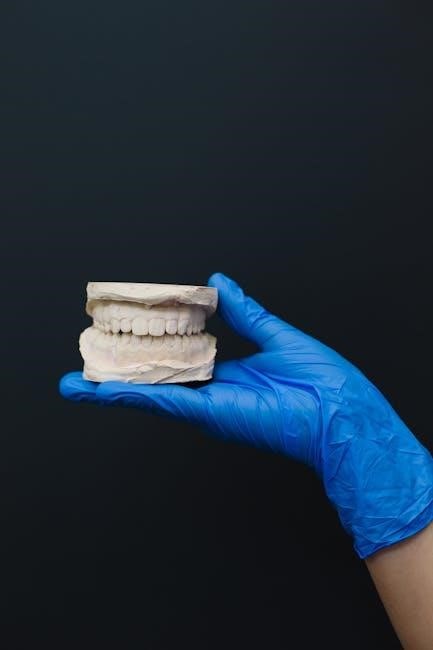
Initial Consultation and Measurement
The process begins with an initial consultation to evaluate the patient’s dental condition and discuss preferences. Precise measurements are taken using advanced tools to ensure accuracy. This step is crucial for creating a mold that aligns with the patient’s bite, facial structure, and aesthetic goals, ensuring a natural appearance and proper fit.
Impression Taking and Mold Creation
Impression taking involves using a dental tray with alginate material to capture precise details of the patient’s mouth. This step ensures the mold accurately reflects the shape and contours needed for proper denture fit. The impression is then used to create a stone cast, which serves as the foundation for designing the denture. This process is critical for achieving both functional and aesthetic outcomes, ensuring the denture aligns perfectly with the patient’s oral structure.
Shade and Tooth Selection
Shade and tooth selection is crucial for achieving a natural, aesthetically pleasing smile. Dentists use shade guides, such as the Chromascop, to match tooth color with the patient’s natural teeth and skin tone. Tooth molds are selected based on shape, size, and occlusal harmony, ensuring proper bite alignment. Modern options like Classic Ultra Value teeth offer realistic aesthetics and diverse shade choices, allowing for personalized customization to meet individual patient preferences and enhance overall satisfaction with the denture outcome.
Finalizing the Mold Design
Finalizing the mold design ensures a seamless blend of aesthetics and functionality. The selected tooth shade and shape are verified for natural appearance and comfort. The mold is polished to achieve a lifelike finish, and occlusal harmony is confirmed for proper bite alignment. Any final adjustments are made to ensure optimal fit and patient satisfaction before the denture is prepared for production, ensuring a durable and visually appealing outcome tailored to the individual’s needs.
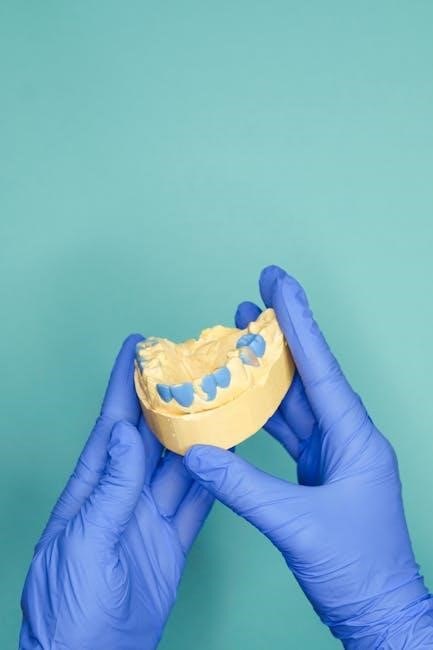
Factors to Consider When Choosing Denture Teeth Molds
Key factors include tooth shade, aesthetics, occlusion, bite alignment, material quality, and durability to ensure a natural appearance, proper fit, and long-lasting performance.
Tooth Shade and Aesthetics
Tooth shade and aesthetics play a crucial role in creating natural-looking dentures. The shade must match the patient’s natural teeth or desired appearance for a seamless smile. Shade guides are used to ensure accuracy, while aesthetic considerations include tooth shape, size, and arrangement. Proper alignment enhances facial harmony, boosting confidence. Aesthetics also influence the overall fit and comfort, making it essential to prioritize both functionality and visual appeal when selecting denture teeth molds.
Occlusion and Bite Alignment
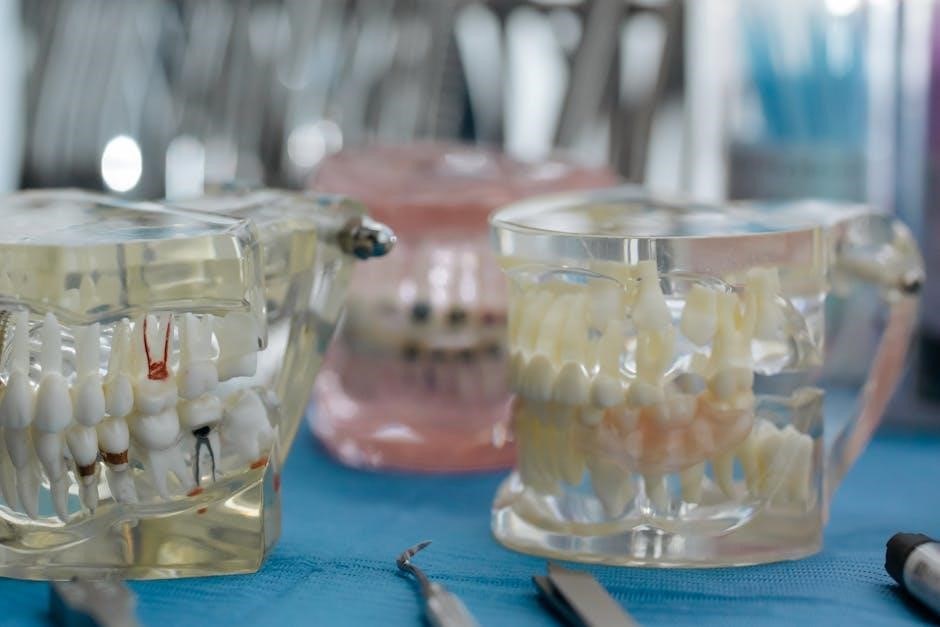
Proper occlusion and bite alignment are critical for optimal denture functionality. Misalignment can lead to discomfort, chewing difficulties, and uneven wear on dentures. Achieving the correct bite ensures natural function, improving speech and chewing efficiency. Dentists use specific molds and techniques to align teeth accurately, ensuring a balanced occlusion. Correct alignment also enhances aesthetics and overall dental health, providing a comfortable and confident fit for patients.
Material Quality and Durability
Material quality and durability are essential for long-lasting denture performance. High-grade materials, such as porcelain or acrylic, ensure strength and resistance to wear. Porcelain teeth offer natural aesthetics and durability, while acrylic options provide lightweight comfort. Durable materials prevent cracking or discoloration, maintaining both function and appearance. Proper material selection enhances overall denture lifespan, ensuring a comfortable and reliable fit for patients. Premium materials are key to achieving optimal dental health and satisfaction.
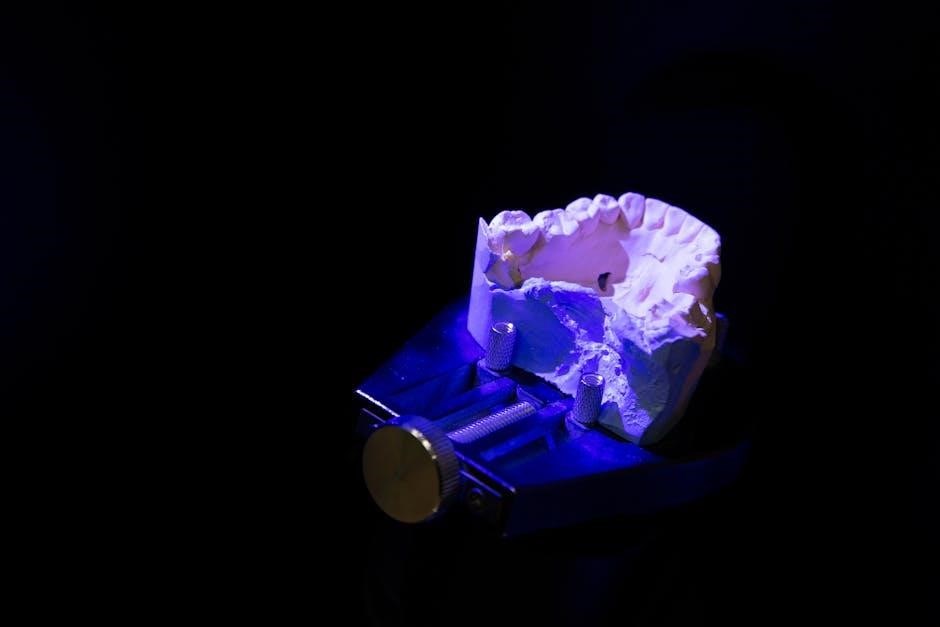
Common Mistakes to Avoid
Common mistakes in denture molds include poor impressions, improper fit, and ignoring patient preferences. These errors can lead to discomfort and functionality issues, requiring costly revisions.
Incorrect Impressions and Fit Issues
Incorrect impressions and fit issues are common mistakes that can lead to significant discomfort and dysfunction. These problems often arise from poor impression techniques or rushing the process. The consequences include ill-fitting dentures that cause discomfort, lead to chewing difficulties, and may necessitate costly revisions. To avoid these issues, use precise impression methods and consult with experienced
Neglecting Proper Occlusion
Neglecting proper occlusion is a critical error in denture mold creation. Occlusion refers to the alignment of upper and lower teeth, essential for chewing, speaking, and comfort. Improper alignment can lead to impaired chewing function, uneven wear, and discomfort. It may also cause instability of the dentures, affecting overall fit and patient satisfaction. Ensuring precise occlusion is vital for both functional and aesthetic success of dentures, making it a cornerstone of the mold design process.
Ignoring Patient Preferences
Ignoring patient preferences is a common mistake in denture mold creation. Patients often have specific desires regarding tooth shade, shape, and overall aesthetics. Disregarding these preferences can lead to dissatisfaction and discomfort. Dentures should not only function well but also align with the patient’s personal style and expectations. Open communication between the patient and dentist is crucial to ensure the final product meets both functional needs and aesthetic goals, enhancing the patient’s confidence and quality of life with their dentures.
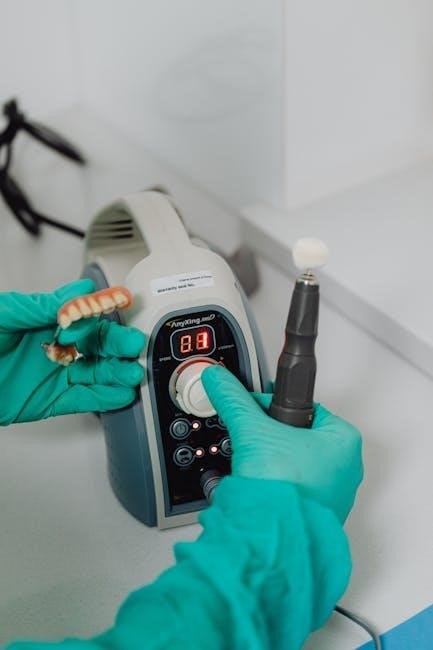
Care and Maintenance of Denture Teeth Molds
Regular cleaning with mild detergents and storage in protective cases are essential for maintaining denture molds. Avoid harsh chemicals and ensure proper drying to prevent damage. Schedule routine dental check-ups for adjustments and hygiene to extend mold durability and ensure a comfortable fit. Proper care enhances longevity and maintains optimal function and appearance. Consistent maintenance is key to preserving the quality and performance of denture molds.
Cleaning and Storage Tips
Regularly clean denture molds with mild detergents and lukewarm water to remove plaque and bacteria. Avoid harsh chemicals, abrasive materials, or boiling water, as they can damage the molds. Rinse thoroughly after cleaning and dry with a soft cloth to prevent water spots. Store molds in a protective case to avoid bending or breakage. For optimal hygiene, soak molds in a cleaning solution overnight, then rinse and dry before reuse. Proper storage and cleaning extend the lifespan of denture molds.
Regular Check-ups and Adjustments
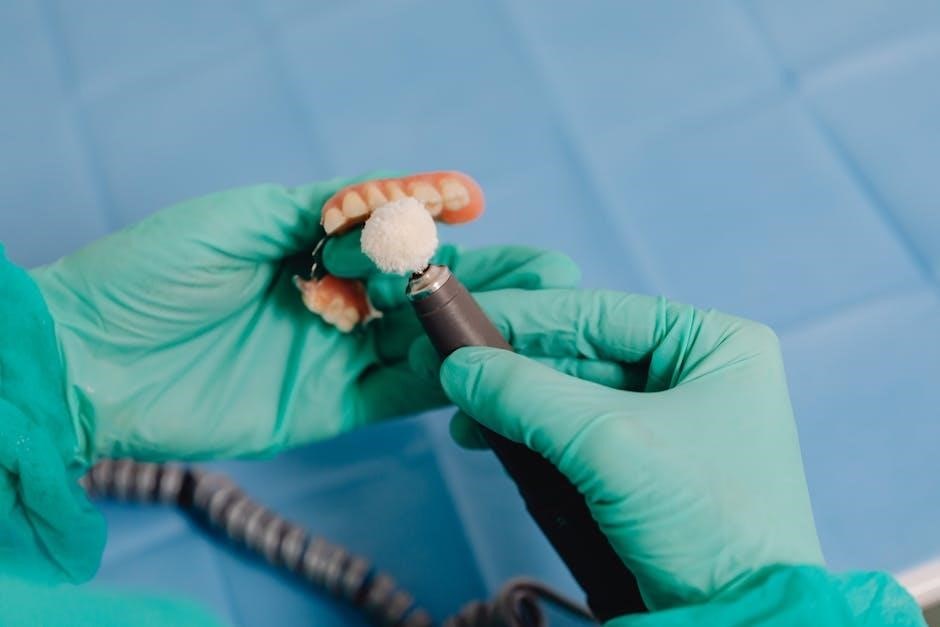
Regular check-ups ensure denture molds remain functional and comfortable. Dentists assess fit, occlusion, and aesthetics, making adjustments as needed. Proper alignment prevents discomfort and uneven wear. Scheduled visits help maintain oral health and extend the mold’s lifespan. Even minor adjustments can significantly improve comfort and performance. Stay proactive to avoid complications and ensure your denture molds continue to meet your needs effectively over time.
Future Trends in Denture Teeth Mold Technology
Digital impressions and 3D printing are revolutionizing denture mold creation, offering precise fits and customized solutions. Advances in biocompatible materials further enhance comfort and durability.
Digital Impressions and 3D Printing
Digital impressions and 3D printing are transforming denture mold creation, offering unparalleled precision and customization. Intraoral scanners capture detailed mouth impressions, eliminating traditional alginate molds. CAD software designs molds with accuracy, ensuring proper fit and aesthetics. 3D printing fabricates molds layer by layer, allowing for complex structures and faster production. These technologies reduce manual errors, enhance patient comfort, and streamline the fabrication process, leading to more natural-looking and durable dentures. They are revolutionizing the future of denture fabrication.
Customizable and Biocompatible Materials
Advancements in denture materials now offer customizable and biocompatible options, enhancing comfort and aesthetics. Modern teeth molds are crafted from high-quality, durable plastics that mimic natural teeth. Biocompatible materials reduce irritation and promote oral health. Customizable shades and shapes ensure a personalized fit, catering to individual preferences. These innovations improve both functionality and patient satisfaction, making dentures more lifelike and comfortable for long-term use.
This guide provides essential insights into denture teeth molds, emphasizing their importance for oral health and aesthetics. Proper selection and care ensure a natural, comfortable smile.
